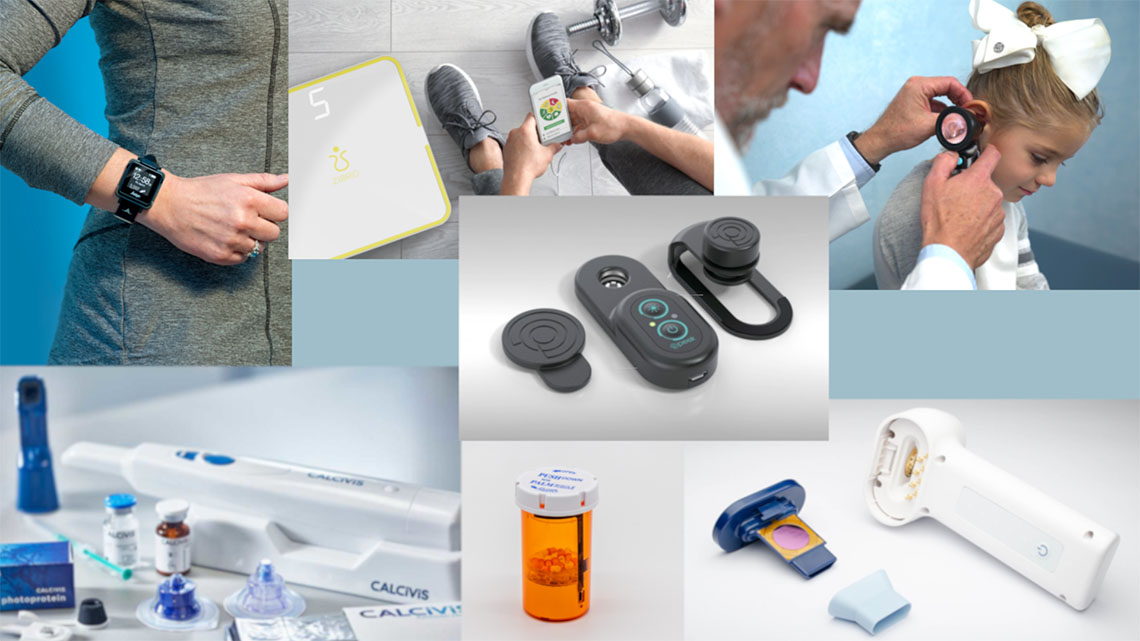Medical Device Manufacturing Picks Up Speed to Meet Pandemic-Driven Demand

The global pandemic has ignited unprecedented demand to the tune of $250 billion in U.S. healthcare spending for new medtech products in both consumer and medical markets. In particular, IoT-enabled innovations that bridge the gap between at-home healthcare and traditional clinical visits are at the forefront of this next wave of medtech. Whether the product is a consumer-side SmartScale that assesses the user’s risk of fall-related injury, a mobile phone ophthalmoscope that’s bringing eye care to third world communities, or a pediatric digital otoscope for seeing into the tiniest eardrums, our teams at Pivot International are proud of the role we’re playing in meeting the rising demand for medtech.
Companies seeking to develop a medical device should be aware of broader considerations that bear on this objective. These considerations include design trends, supply chain challenges, regulatory and compliance adherence, and product development-partner experience with a scope of expertise. Let’s take a look at each.
Medical Device Manufacturing and Design Trends
Like almost all electronics products, medtech devices are becoming smaller and smaller and increasingly less invasive. The CRiL Personal Capnometer, for example, created by Pivot’s subsidiary Wideblue in partnership with Cambridge Respiratory Innovations, is a small, handheld, battery-powered, user-friendly, fully automated, non-invasive lung-assessment device. Incorporating each of these criteria in a single product is no small feat and requires highly advanced design expertise. For this accomplishment, Wideblue garnered a coveted German Design Award and a sought after European Design Award.
When thinking about design considerations, it’s important to remember that design and design-for-manufacturing (DFM) are two different things. While a talented design team can help you create a wow-worthy product, you’ll need DFM to optimize it for scalable production to ensure you’re reaping maximum ROI.
Supply Chain
It’s hardly news the global pandemic has confronted product developers across nearly all industries with supply chain concerns, but medtech companies face an additional set of challenges. Due to U.S. trade policy changes that now prohibit outsourcing certain security-sensitive and critical parts and components to China, medtech companies are faced with finding alternative supply chain and manufacturing partners. On its own, this can be a formidable task, but add it to the need to achieve comparable cost-competitiveness to China-based suppliers, and the plot thickens.
Even if a China-alternative partner is procured, this doesn’t mean you can automatically put your supply chain concerns to bed. There are other questions to consider, like, “Can my partner guarantee transparency into the product development process? Will they work collaboratively with my team? Do they own their facilities? Do they bring a proven track record of defying disruption?
Regulatory and Compliance Adherence
Medtech devices are understandably subject to some of the most stringent quality control and compliance criteria of any industry. Companies will need to work with a partner who brings FDA-registration, ISE and ISO certifications (ISO 9001:2015, ISO 13485:2016, ISO 80079-34, and IEC 60601-1), and a proven track record of bringing multiple medtech devices successfully to market.
For companies new to medtech development, navigating the compliance process can be dizzyingly, complex, and time-consuming. At Pivot, because our one-source model addresses absolutely every aspect of product development from “cradle to grave,” we have specialized teams in place to take the headache out of the compliance process.
Partner Experience and Breadth of Expertise
Experience counts. Just because a startup can bring a handful of successful products to market doesn’t mean it has the history and breadth of experience to develop integrative expertise. This integrative experience is critical for many reasons:
It ensures big-picture thinking that is better equipped to accurately identify strengths, weaknesses, opportunities, and threats.
Because it promotes “cross-pollination” deriving from know-how across multiple design and engineering disciplines, it fuels innovation.
It delivers a highly coordinated and seamless product development process.
Our teams at Pivot bring nearly fifty years of experience in industry-leading integrative product development (including concept, prototyping, engineering, design, DFM, compliance, manufacturing, and distribution). With expertise that spans fourteen industries, 200,000 square feet of manufacturing capability across three continents, company-owned facilities, and a proven track record of bringing award-winning medtech to market, we’re the partner you’ve been looking for. Contact us today and learn more about how we can help your company grow.

